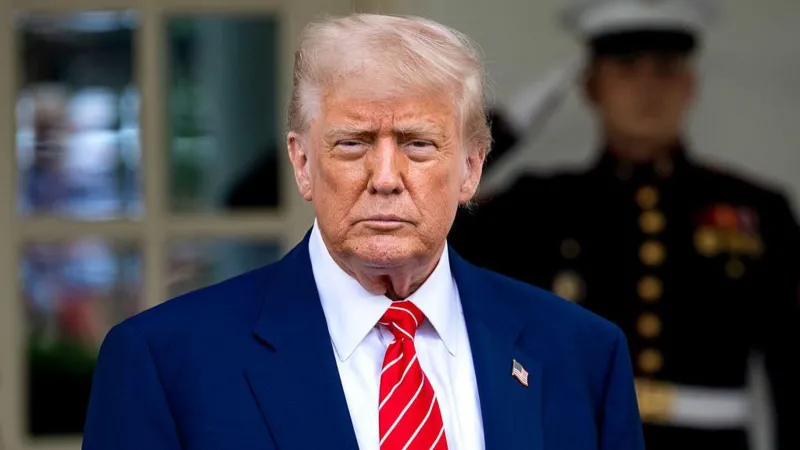Trump administration considers suspending habeas corpus

Donald Trump's administration is "actively looking at" suspending habeas corpus - the right of a person to challenge their detention in court - one of the US president's top aides has said.
Stephen Miller, the White House deputy chief of staff, told reporters on Friday that the US Constitution allowed for the legal liberty to be suspended in times of "rebellion or invasion".
His comments come as judges have sought to challenge some recent detentions made by the Trump administration in an effort to combat illegal immigration, as well as remove dissenting foreign students.
"A lot of it depends on whether the courts do the right thing or not," Miller said.
There are several pending civil cases against the Trump administration's deportation of undocumented migrants based on habeaus corpus.
Most recently, a federal judge ordered the release of a Turkish university student who had been detained for six weeks after writing an article that was critical of Israel.
Last week, another judge ordered a Columbia University student detained over his advocacy for Palestinians be released after a petition on habeas corpus grounds.
However, other judges have sided with the Trump administration in such disputes.
Miller described habeas corpus as a "privilege", and said Congress had already passed a law stripping judicial courts of jurisdiction over immigration cases.
Legal experts and critics have questioned the veracity of his interpretation of US law.
"Congress has the authority to suspend habeas corpus - not Stephen Miller, not the president," Marc Elias, an attorney for the Democratic Party, told MSNBC.
One of Trump's key campaign pledges was to deport millions of immigrants from the US, and his administration has pursued different means of expediting deportations since returning to the White House.
In March, a federal judge's order prevented the Trump administration from invoking a centuries-old wartime law to justify deporting more than 200 Venezuelans, despite the flights going ahead.
But deportations have lagged behind detentions - while one person has been deported erroneously.
CNN reported, citing unnamed sources, that Trump was personally involved in the discussions around suspending habeas corpus.
Trump himself has not mentioned the suspension of habeas corpus, but has said he would take steps to combat injunctions against his actions on deportation.
"There are ways to mitigate it and there's some very strong ways," he said in April.
"There's one way that's been used by three very highly respected presidents, but we hope we don't have to go that route."
Habeas corpus - which literally means "you should have the body" - allows for a person to be brought before a judge so the legality of their detention can be decided by a judge.
The legal right has been suspended four times in US history: during the American Civil War under Abraham Lincoln, in Hawaii following the 1941 Japanese bombing of Pearl Harbour, in the Philippines during US ownership in 1905, and while combat the activities of the white supremacist Ku Klux Klan group in the 19th Century.
The section of the US Constitution which includes the suspension of habeas corpus grants its powers to Congress and not the president.
Source: BBC
























































